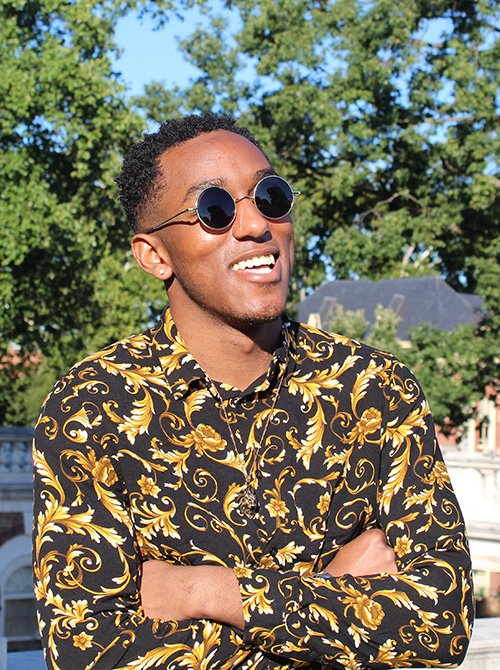by Josh Heman-Ackah, 2021 Undergraduate Summer Research Fellow in Lived Theology
Throughout the last couple of months, I have endeavored to create a digital exhibit of the Civil Rights Movement in Virginia. Our group of research fellows successfully created around fifteen contributions to the Project on Lived Theology website; they took on various media forms, such as historical summaries, interviews with authors, audio clips from court cases, and newspapers from the time period. While a significant amount of work was accomplished, there is still opportunity for another group to pick up where we left off. For instance, although we included a webpage partially dedicated to The Cavalier Daily’s involvement in the movement, it became increasingly clear that not all of the UVA student newspaper’s contributions could be listed. Perhaps the next group can write more about the Cavalier Daily’s accomplishments, such as pressuring UVA community members to leave the segregated Farmington Country Club in the 1960s or assisting the student council in adding more black faculty and students to the university. For every Roy Wilkins (executive director of the NAACP) we wrote about, there was a Henry Marsh (the first African American mayor of Richmond, Virginia) that we did not have time to write about. Additionally, the more you know, the more you realize you do not yet know. I am sure the next group will find fascinating topics that interest them and that over time, this digital showcase can give a more comprehensive history of the movement in Virginia.
Over the research fellowship, I grew infinitely in my appreciation for history, especially American history. Despite my previous doubts, I learned that everyday citizens can make extraordinary political change that affects countless people. For instance, many people know that the Brown v. Board of Education decision of 1954 overturned the “separate but equal” doctrine and forced the desegregation of public schools, but not many people know the case’s origin. Barbara Rose Johns was a 16-year-old junior at Morton High School in Farmville, Virginia, and she single-handedly organized a group of protestors, the “Manhattan Project,” in her school. Their student walkout gained the attention of the NAACP, which brought the school’s racial dilemmas to court. Four other similar stories, sparked by four other individuals dealing with segregated schools, were brought collectively to the U.S. Supreme Court under the name of Minister Oliver Brown. Because of such individuals raising their voices across the country, I grew up with the right to attend desegregated public schools with superior education and resources. Indeed, the actions of everyday citizens, including myself, can accumulate into tremendous change, locally and nationally.
I have written in previous blog posts about my frustration at the lack of specificity in the written archives. What had been a frustration is now an invitation to learn more through relationships. Each week, I get a new lead on a potential interviewee or resource from a congregant at St. Paul’s. These leads help me to match existing pieces as well as discover new pieces of the puzzle. So many congregants have offered their encouragement and involvement over the course of this research adventure; I so appreciate that support.
Finally, with regard to lived theology, there were abundant instances of various religions and spiritualities playing huge roles in the movement—from the Negro spiritual songs that lifted morale and fueled perseverance to scriptures that laid the moral foundation for organizations like SNCC or the NAACP. A memorable example of this is how Congressman John Lewis started off his life preaching to the chickens on his farm. From this early expression of his Christianity, he fell in love with the “social gospel,” which inspired his advancement of civil rights. Both Black and white clergy certainly also had their roles in influencing the communities’ responses, sometimes working in favor of desegregation and sometimes in favor of keeping segregation. While there will always be diversity of opinions and beliefs, one thing is certain: there is more work to be done in our country. I am honored to have completed this research fellowship, and I will use what I have learned to be a part of positive change while keeping an eye out for how religion and spirituality intersect with the secular world.
Read Josh’s first and second blog posts here and here.
Learn more about the 2021 Undergraduate Summer Research Fellowship in Lived Theology here.
The Project on Lived Theology at the University of Virginia is a research initiative, whose mission is to study the social consequences of theological ideas for the sake of a more just and compassionate world.

